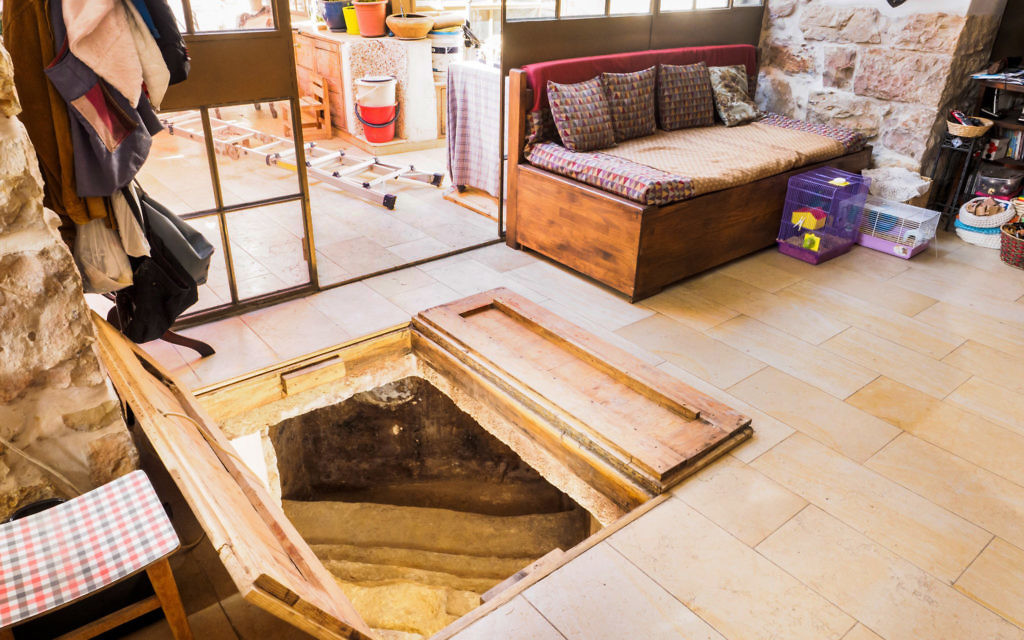
Assaf Peretz/Israel Antiquities Authority/Israel
An ancient, two thousand year old mikvah (ritual bath) was discovered below a living room floor during renovations carried out in a house in Ein Kerem, Jerusalem.
Archaeologists of the Israel Antiquities Authority (IAA) discovered a pair of wooden doors beneath a stylised rug in the middle of a family’s living room – which concealed an ancient ritual bath.
On Wednesday the owners were awarded a certificate of appreciation by the IAA for exhibiting good citizenship in that they reported the discovery and thereby contributed to the study of the Land of Israel.
Get The Jewish News Daily Edition by email and never miss our top stories
Free Sign Up

Assaf Peretz/Israel Antiquities Authority/Israel
The mikvah, which is complete and quite large (length 3.5 m, width 2.4 m, depth 1.8 m), is rock-hewn and meticulously plastered according to the laws of purity appearing in the Jewish law.
A staircase leads to the bottom of the immersion pool. Pottery vessels dating to the time of the Second Temple (first century CE) and traces of fire that might constitute evidence of the destruction of 66-70 CE were discovered inside the bath.
In addition, fragments of stone vessels were found which were common during the Second Temple period because stone cannot be contaminated and remains pure.
According to Amit Re’em, Jerusalem District Archaeologist, instances of finding antiquities beneath a private home can happen only in Israel and Jerusalem in particular.
Ein Kerem is considered a place sacred to Christianity in light of its link to the “city of Judah” – the place where according to the New Testament, John the Baptist was born.
Despite this, the archaeological remains in ‘Ein Kerem and the surrounding area.. are few and fragmented. The discovery of the ritual bath reinforces the hypothesis there was a Jewish settlement from the time of the Second Temple located in the region of what is today ‘Ein Kerem.”

Assaf Peretz/Israel Antiquities
The owners told Israel Antiquities Authority: “Initially, we were uncertain regarding the importance of the find revealed below our house and we hesitated contacting the Israel Antiquities Authority because of the consequences we believed would be involved in doing so. At the same time, we had a strong feeling that what was situated beneath the floor of our house is a find of historical value and our sense of civic and public duty clinched it for us.
“We felt that this find deserves to be seen and properly documented. We contacted the Israel Antiquities Authority at our own initiative in order that they would complete the excavation and the task of documenting the discovery. Representatives of the IAA arrived and together we cleaned the miqwe. To our joy and indeed to our surprise, we found them to be worthy partners in this fascinating journey. The IAA archaeologists demonstrated great professionalism, interest and pleasantness. They were solely concerned with preserving and investigating the finds.”


























